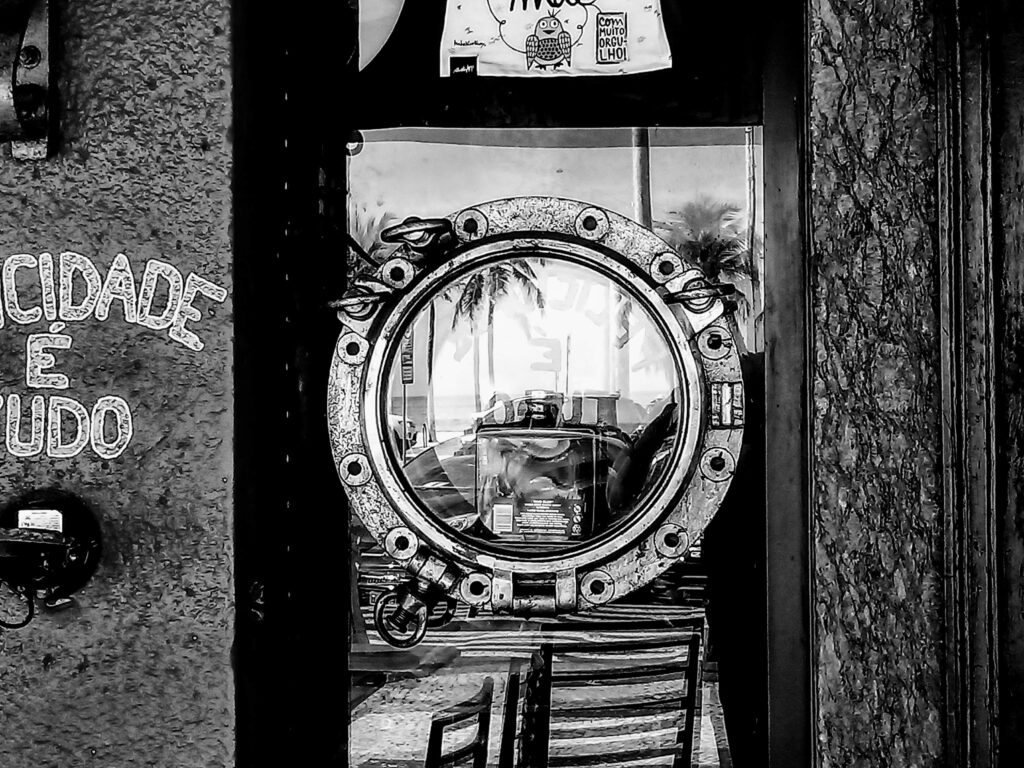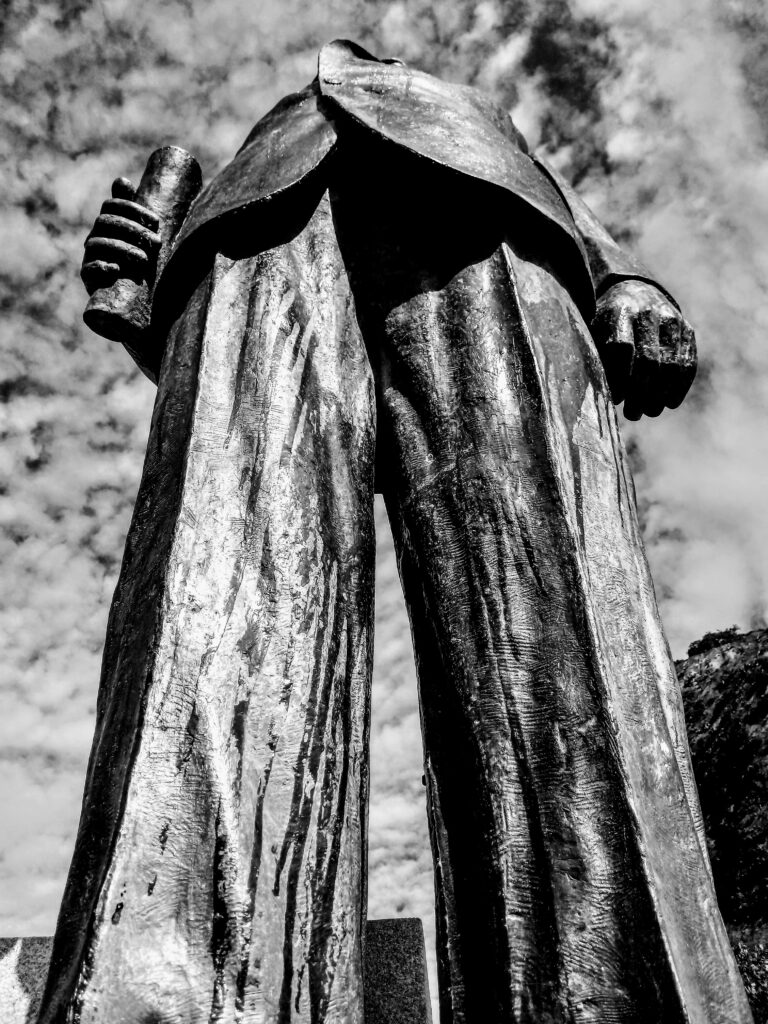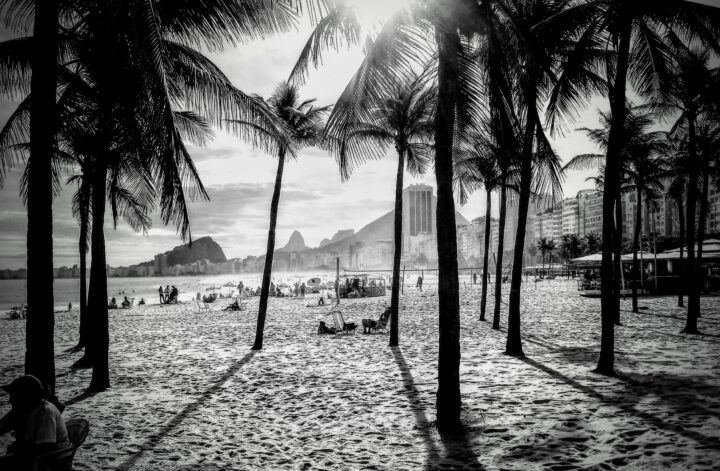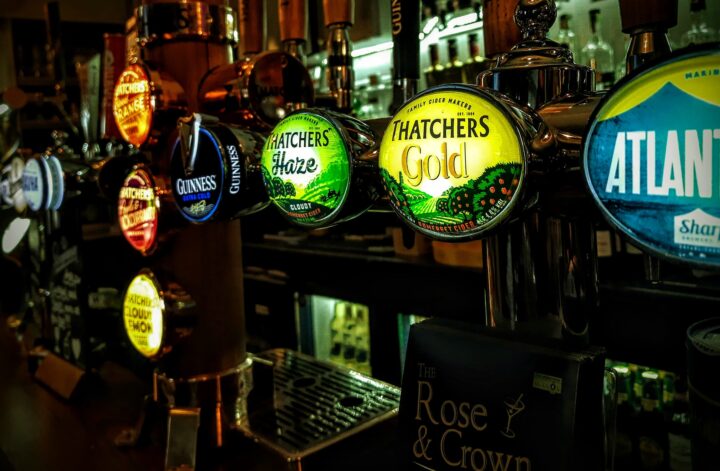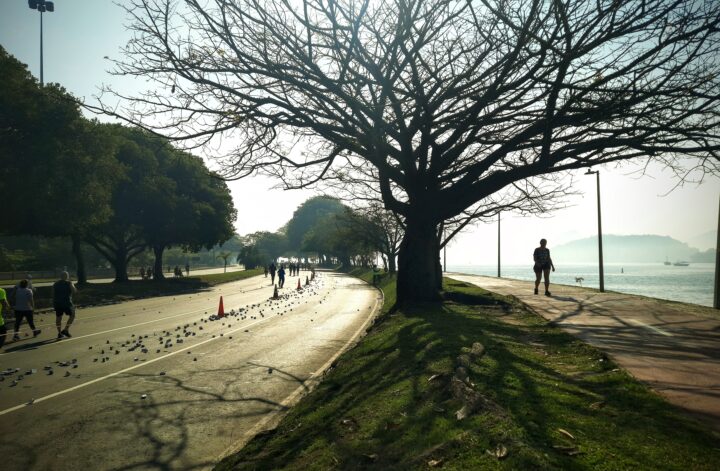Copacabana, Rio de Janeiro: 30oC, hot, sunny, and slightly cloudy.
It was a hot and lazy day, and I had trouble sleeping the previous night. My mind was preoccupied with thoughts about the next couple of months. Despite feeling tired, I was determined to wake up early and go outside to exercise.
I arrived at the end of Leme a little later than normal. The sun was beginning to appear, but it was still dark. There were no dog owners. I set up the TRX and began.
Almost at the end of my workout, when I was skipping—it is usually the last series I do—I saw a dog owner whom I knew by sight. As he approached, we complimented each other, and I took the opportunity to ask about Paulo.
I was a little concerned. Paulo had not been to the square for at least a week. Paulo was the kingpin of the group of dog owners. He would be the first to arrive, and everybody would resonate around him with their dogs. You often find this in social groups where one is the natural leader whom everyone else looks to.
The common friend told me that Paulo was with Covid. He had gone to the UPA-an emergency health post in Copacabana, and was diagnosed with Covid and was at home, isolated from the rest of the world for more than a week.
Nowadays, I compare many things from what was before Covid and what is now. Even though Brazil was in a recession before Covid, people were still going to work normally. Managing their lives on a normal basis.
When Covid appeared, I had my small English course in Copacabana with approximately 40 to 50 pupils that would have either private or group classes at the school. The school was the hub of the business, with everything and everybody hovering around that one point. Financially, the school was not in a good situation, but it was surviving.
I remember the day when an employee of the building where the school was came and told me that I had to close the school and go home. It was a Tuesday in the middle of March. At that time, the government, the press, and everybody expected the situation to last only two weeks. Those two weeks went on for two years and more.
When the population was informed that there wasn’t a date to go back to normal, I quickly realised that I would have to transfer all my pupils to online classes as quickly as possible.
I created a school class timetable in Office Word and sent it to all my pupils to reserve a time. If I remember correctly, this was at the end of March, the beginning of April.
Of my 40 pupils, I think I lost between 20 to 30% of them as they didn’t want to have online classes, only presential. What could I have said or done? It was their choice. The online classes at the beginning were half an hour as I needed to cram in all my pupils in half-hour classes twice a week.
After four or five months, I thought that 30 minutes for a class was not enough, too short, so I increased it to 45 minutes. The classes had to be rearranged with some pupils, but now it was better. Thus, the package of two classes a week, 45 to 50 minutes for each class, was created. It was good for both the pupil and the teacher.
At the same time that I was reorganising my professional work, I immediately contacted the real estate Agency that was responsible for the school’s premises to Renegotiate my rent.
As I was not allowed to receive anybody at the school, it was permanently closed due to the lockdown, and nobody knew when.I got to reduce the rent by a little more than half. It would cover the condominium (building administrative charge) and IPTU (rates), and there would also be a small amount left for the owner of the property; it was fair and unavoidable.
I gave my word to pay the school rent until Carnival next year. Exactly a year from when Covid had appeared. I thought at the time, as well as everybody else, that everything would be back to normal in a year from now.
But it wasn’t; the second wave of Covid had already hit, and the body count in Brazil was stratospheric, with no signs of going down. So, I decided to give back the premises to the real estate agency. They did not want me to return to the shop, but I had decided, and it was necessary.
Until today, I have been giving online classes of 45 to 50 minutes twice a week at my home office. For me, Covid has completely changed or even ripped apart the infrastructure and customs of modern life.
Workers in the past would have the option of working remotely only one day a week, but now, they work 100% remotely. It is rare to need to attend in-person meetings at the office.
The same goes for lawyers, judges, engineers, etc. Companies and people don’t need the traditional office environment as before, and consequently, because of this, the city centres of major urban cities suffer. Due to the lack of movement, people who used to go to their offices now stay home because of working remotely.
Rio and Sao Paulo are classic examples of abandonment in their city centres. Very few people in the streets, a fraction of before; consequently, bars, restaurants, shops, and trade in general have closed or suffered greatly.
In both cities, the local governments are trying to revitalise the areas, but it will take time, and it does not depend solely on them; other factors will have to be favourable as well. Let us see what happens. The last I heard was that Paulo was recovering well.
The rest of the day was supermarket housework and films.
In bed by 9:00 pm.
Thank you.
Thanks for reading my blog. Check out my other posts and share your thoughts in the comments.
Richard
